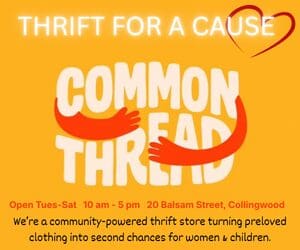The prevalence of anxiety in our children and teens is alarming and needs our attention.
The Children’s Mental Health Ontario (CMHO) has reported data showing that about 20% of Canadian children experience diagnosable mental health disorders, with anxiety being one of the most prevalent.
Additionally, CMHO highlights long wait times for accessing mental health services, with over 28,000 children on waitlists for care.
The Centre for Addiction and Mental Health (CAMH) research and surveys have highlighted that
approximately 39% of high school students in Ontario report moderate to severe psychological distress, including anxiety and depression.
Of these, 17% report severe levels of distress. This suggests that a substantial portion of young people are grappling with mental health challenges that can impact their
academic performance, social interactions, and overall quality of life.

Post-COVID data from Statistics Canada has shown that 70% of parents believe the pandemic worsened their children’s mental health, with anxiety being a major concern. This data is part of broader national surveys on the mental health impact of the pandemic on children. Factors such as social isolation, disruptions in routine, and fear of illness have contributed to increased anxiety levels in children and teens.
In my private practice, a significant amount of my work entails teaching children and teenagers
about anxiety: where anxiety comes from, how it works within their bodies and ways to manage
anxiety so they are more resilient and empowered. I also work closely with their parents so that
they can support their children with knowledge, tools and support.
In order to address this significant issue for children and teenagers, this fall I will be
teaching a comprehensive parenting course called Fear-Less, which is created by Triple P
Parenting from Australia.
Is this course for your family?
Your child (age 6-14) has anxiety that is affecting their everyday life. It may stop them, or your
whole family, from doing certain activities. Your child may be worried a lot of the time. You
may swing between reassuring them and telling them to face their fears. Neither of these seems
to work and their anxiety seems to increase. You may feel like you’ve tried everything, and
possibly may be anxious yourself. If parenting a child with anxiety is affecting your life and
you’d like to help your child worry less and be more confident, continue to read.
What is Fear-Less?
This evidence based program teaches parents to be good examples of coping with anxiety, coach children to become more emotionally resilient and develop your own toolbox of strategies. You can choose how to best support your child as they learn to manage their anxiety more effectively. Fear-Less Triple P is part of the comprehensive parenting system, the Triple P – Positive Parenting Program.
What can I expect from this program?
Fear-Less Triple P encourages you to use practical strategies with all family members, not just the
child who seems especially anxious. In this way, the Fear-Less Triple P program helps the whole
family. The program is based on research and experiences working with the families of children
and teenagers with anxiety for more than 30 years.
Why is it called Fear-Less?
It’s called “Fear-Less” (not fearless) because its not possible (or useful) to completely eliminate
fear from our lives. Sometimes fear is reasonable and helps keep us safe. What we can do is
reduce unnecessary fear and worry. This means learning to cope with anxious feelings and
becoming more confident. This is true whether we’re adults, teenagers or children.
(Reference: triple.net).
How to get involved?
The program is delivered over 6 weeks for two hour sessions. Here are the details.
Format: online
Dates: Begins October 9 – November 13, 2024 (6 weeks)
Time: 6pm to 8pm
Cost: $200 plus $40 for the course book
Presenters: Wendy Hunter, Registered Psychotherapist, RP, BA, E.C.E.
Peggy Govers, RN, MScN
Registration: Wendy Hunter – [email protected] or call 705-794-5307
Written by Wendy Hunter, RP and owner of In Support of Children Counselling






















